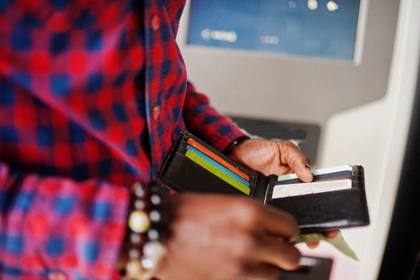Can you use a credit card to pay a person directly?
Yes, but it’s not always simple. Credit cards are designed for buying goods and services from businesses. Paying an individual – like a friend or your plumber – can be tricky, but there are ways to do it.
Ways to pay someone with your credit card
There are a number of ways you can pay someone using your credit card. These include the following.
Use a money transfer service
Some companies, like Western Union or MoneyGram, let you send money using your credit card. But they often charge high fees and interest rates if you don’t clear the balance straight away.
Use a payment app or digital wallet
Some payment apps and digital wallets can let you link your credit card and send money to someone's bank account or email address. Check whether your chosen app allows credit card funding, as policies vary between providers and regions.
Again, there might be fees for using a credit card instead of a debit card.
Take out a money transfer credit card
A few credit card providers offer ‘money transfer’ cards. These let you move money from your credit card into your bank account, which you can then use to pay anyone you like. These cards often offer a low or 0% interest rate for a set time – but you’ll usually pay a transfer fee of around 2-4%.
Things to check before paying someone with a credit card
-
Fees: UK shops can't charge you extra for paying with a credit card, but some payment apps might still charge fees when you send money using your card
-
Interest: Cash advances or money transfers can attract higher interest rates than normal purchases.
-
Cash advance fees: Some payments to individuals are treated like cash withdrawals, adding extra charges. For example, using apps like PayPal to send money with your credit card might count as a cash advance.
-
Payment protection: Buying goods or services with a credit card can give you Section 75 protection, but paying individuals for non-business reasons often doesn’t.
Ocean Credit Card
See if it's a YES before you apply
- Up to £8,000 credit limit
- Checking won't affect your credit score
- Get a response in 60 seconds
Intelligent Lending Ltd (credit broker). Capital One is the exclusive lender.

Can you pay someone by giving them your card details?
No, you should never share your credit card details with someone so they can process a payment themselves. This is risky and could lead to fraud or theft.
When paying someone with a credit card might make sense
Using a credit card can be useful if:
-
You’re paying a business or sole trader who accepts card payments.
-
You want extra protection when buying goods or services.
-
You need to spread the cost over time (but remember to consider the interest).
When it might not be a good idea
It’s usually best to avoid paying individuals with your credit card if:
-
You’d pay high fees or interest charges.
-
You can’t pay the balance off quickly.
-
The person you’re paying asks for your card details directly.
What’s the best way to pay someone safely?
-
For small amounts to friends/family: Bank transfers are usually free and instant.
-
For businesses or tradespeople: Pay by card if they accept it, or do a bank transfer with a clear payment reference.
-
For international payments: Consider using a service like Wise, which can be cheaper than credit card payments abroad.
You can pay someone with a credit card, but it’s not always the best option
You can pay someone using your credit card through money transfer services or apps, but it can cost you more in fees and interest. Always check the costs and think about safer, cheaper options like bank transfers first.
Disclaimer: We make every effort to ensure content is correct when published. Information on this website doesn't constitute financial advice, and we aren't responsible for the content of any external sites.






